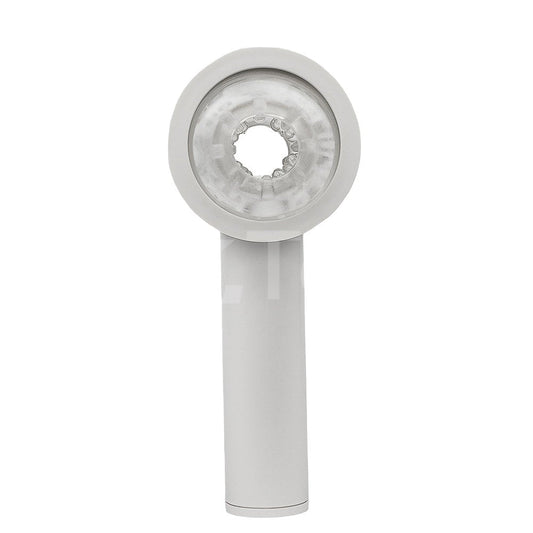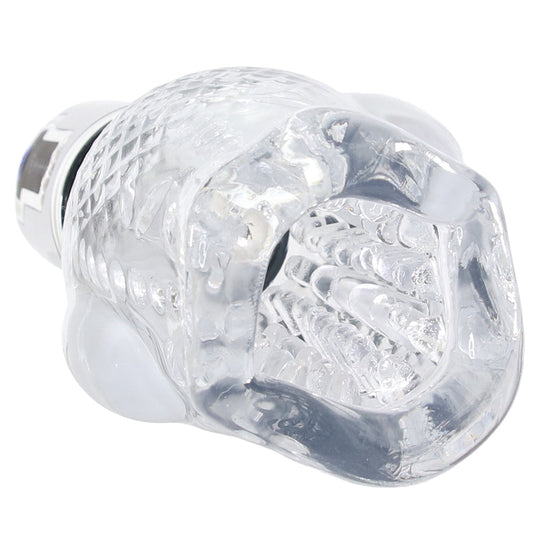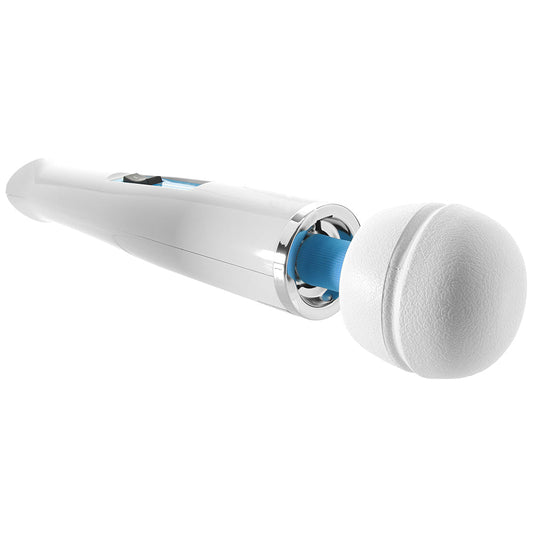[The following is an excerpt for the book The Sex Bible For People Over 50 by the Pornhub Sexual Wellness Center’s director, Dr. Laurie Betito].
A 49-year-old woman and her 50-something husband came to see me because they’d stopped having sex several years before, and when they finally tried again, she found it too painful to continue. It turns out that she didn’t have a clue about the effects of menopause. She knew the word, but she didn’t know what it meant.
Unfortunately, even members of the medical community may not be up-to-date on this topic or willing to discuss it. This chapter, then, is for any couple in the same predicament as my clients. Although it focuses on the health and sexuality of a woman as she ages, the information here is beneficial for both partners. It will clear up misconceptions, perhaps tell you some things you didn’t know about the topic, and give you easy solutions to common issues.
There’s a lot of information about menopause that doctors don’t have the chance or time to tell us because they’re so rushed. Yet without this information, women can’t even formulate the right questions to ask. If you’re armed with accurate information about your sexuality at this stage of life, you can make better choices about your body and sexual health—and that allows you to open your mind to all sorts of different possibilities.
However, it’s critical that you share new knowledge with your partner, especially about how your body is changing. He’s not living in your body, and he has no idea how you feel if you don’t tell him. For example, if you avoid having sex because you’re experiencing vaginal dryness, he may simply assume you’re no longer attracted to him. Too much guesswork can hurt relationships.
CELEBRATE MENOPAUSE!
Menopause is the cessation of a woman’s menses (her period), which indicates that she can no longer become pregnant. Basically, her ovaries are no longer producing estrogen and progesterone. A woman is considered in menopause when she hasn’t had a period for one year.
According to the National Institute on Aging, the average age for menopause is 51. However, symptoms of menopause can be experienced many years earlier and can last months or years after periods stop. A woman is said to be in perimenopause three to five years before menopause, when her estrogen levels begin to decrease.
Menopause is a normal part of life, much like puberty. Having said good-bye to our reproductive years, it’s a time when we get to reclaim our sexuality for sexuality’s sake. This is good news because sex is now purely for pleasure.
HELP EASE THE TRANSITION
Not all women seek or even need medical help for symptoms related to menopause, whether they’re experiencing hot flashes and night sweats or anxiety and vaginal dryness. The fact is that many women don’t experience symptoms severe enough to require treatment. However, if symptoms are affecting your daily life, you should see your family doctor or your gynecologist. The more you know about this transition, the better your sex life will be.
Bottom line: The kind of treatment you should have depends on your symptoms and your medical history. Symptoms are just symptoms. You can STILL have a great and satisfying sex life if you follow some solid advice. You just may have to do things a little differently.
HOW DOES MENOPAUSE AFFECT SEXUALITY?
The symptoms of menopause can begin well before a woman stops menstruating completely. Good news: Most have no effect on your sexuality! However, you may notice the following, in various degrees: changes in your sexual response cycle, vaginal atrophy and dryness, or vaginal laxity.
CHANGES IN THE SEXUAL RESPONSE CYCLE
There are several phases to our sexual response cycle: arousal and excitement, plateau, orgasm, and resolution. Some of these may be affected by aging, but there are solution available.
Arousal and Excitement: As women (and men) age, they may take longer to reach their excitement phase because less blood is flowing to the genitals. Something similar happens to other areas of our bodies as we age as well.
Solution: Use a clitoral stimulator to provide more direct contact. Pick one that provides a strong vibration.
Plateau: Because your body may be producing less vaginal lubrication, your plateau phase—the buildup to orgasm—may take longer.
Solution: Increase foreplay, and during intercourse, apply pressure to your clitoris with a hand or a sex toy.
Orgasm: For many women, orgasms become less frequent and less intense after menopause. This could be a result of diminished hormones, medications, or another physical problem related to aging. However, your ability to reach orgasm doesn’t disappear!
Solution: Let go of orgasm as the goal and enjoy the journey. You can still experience pleasure during sex even if you don’t climax, and focusing too much on whether you’re going to orgasm can actually reduce the chances that you will.
Resolution: In this phase, your body recuperates.
Solution: Bask in the afterglow!
As you can see, with some simple solutions, the changes to your sexual response cycle after “the change” do not make sex any less enjoyable.
VAGINAL ATROPHY
Vaginal inflammation, shrinking, and thinning of the vaginal walls are due to the decline in estrogen that accompanies menopause. According to one Canadian study, 66% of postmenopausal women avoid sexual intimacy due to the fear of painful intercourse caused by vaginal atrophy. Unfortunately, many women feel uncomfortable discussing this topic with their significant other—or seeking medical help. What a shame, when this is such an easy problem that can be remedied.
Solution: Talk to your partner about your discomfort, as communication is essential. Although having sex is probably the last thing you want to do when your vagina feels irritated and dry, continuous sexual activity is the best way to bring blood to your sexual organs and keep your vaginal walls healthy. Be sure to include foreplay and gentle stimulation, along with a personal lubricant.
VAGINAL DRYNESS
A by-product of vaginal atrophy, vaginal dryness is caused by inadequate lubrication. It may be accompanied by burning and itching, especially during sex. Sadly, it often leads to women flat-out refusing sex, which makes it a big concern for couples.
Lack of vaginal lubrication is NOT necessarily a sign of a lack of arousal, especially for women over fifty. Before you assume that you can’t possibly be turned on—or that he isn’t turning you on—let’s find out what your genitals go through as you age and what you can easily do about it.
The walls of the vagina are normally lubricated with a thin layer of fluid. When a woman is sexually aroused, blood flows to her sexual organs, which creates even more fluid. When estrogen levels decrease, as they do during menopause, the vaginal walls lose their elasticity and become more fragile and vulnerable to small tears. A typical consequence of vaginal dryness is pain—or in more serious cases, bleeding—during sex, along with a burning sensation.
Although vaginal dryness can occur at any age due to different causes—breastfeeding women sometimes experience it, for example—it’s most often experienced during or after menopause, and gynecologists report that it’s the number-one complaint of women over fifty.
Fortunately, there are many remedies. Prescribed estrogen-based and over-the-counter lubricants are the most accessible and least expensive, and can help restore the necessary lubrication to the vaginal walls, making intercourse pleasurable again. In many instances, a good personal lubricant is all that is needed, but if the problem persists, talk to your physician about other options.
VAGINAL LAXITY
The term vaginal laxity refers to the stretching of the vagina and its opening, the introitus. The condition is generally associated with vaginal delivery or pelvic organ prolapse (dropping of the bladder, uterus, and/or rectum); however, it may also just happen naturally as we age. A woman with this condition might feel “loose,” and some may even feel like their insides are going to fall out. This looseness can affect sexual satisfaction, especially if she doesn’t feel her partner inside or he isn’t getting enough friction during intercourse.
Research into this area is relatively new. In one pilot study, women and their doctors found that the surgery to rectify vaginal laxity, called vaginoplasty—the removal of excess vaginal lining and the tightening of the surrounding soft tissues and muscles—was more effective than simply doing Kegel exercises or undergoing pelvic floor physical therapy, although both are also great options.
Some women may need another type of surgery, called colpoperineorrhaphy, to repair the area; it’s akin to an episiotomy repair. A third study found that nonsurgical radiofrequency thermal therapy, which is basically microwaves applied to the tissues to tighten the skin, was an effective treatment: Patients reported a significant improvement in vaginal tightness and sexual function, as well as decreased sexual distress. Research in this area is ongoing, so stay informed of new developments!























